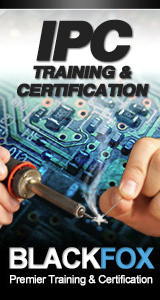Quality engineers have long known that cleanliness of printed wiring boards is crucial to the assembly’s performance and reliability. The common method for process control at the assembly level is IPC 2.3.25 – Detection and Measurement of Ionizable Surface Contaminants by Resistivity of Solvent Extract (R.O.S.E.).
R.O.S.E. testing was highly beneficial since the test provided a quick and easy method for manufacturing technicians to statistically control and monitor the production assembly and cleaning processes. The R.O.S.E. method limitations arise from the methods’ inability to dissolve many of today’s flux residues, and to remove and detect ionic contamination trapped under low component clearances.
These limitations question the validity of the R.O.S.E. test method as a quality assurance and process control indicator on many of today’s leading edge circuit assemblies. The purpose of this research paper is to test the effectiveness of new ion exchange resins for removing both ionic and non-ionic contaminants from improved extract solvents
Dr. Bixenman is CTO of Kyzen Corp., and current Chairperson of the IPC Cleaning and Alternatives Handbook and IPC/SMTA High Performance Cleaning Symposium.
Kyzen is a leading supplier of precision cleaning chemistries to the worldwide electronics, metal finishing, medical, semiconductor, and optical industries. Founded in 1990, Kyzen offers superior cleaning chemistries, technical support, application and analytical services throughout the world. Kyzen has won numerous industry awards for their exceptional products and all products are RoHS compliant. For more information, visit http://www.kyzen.com.






